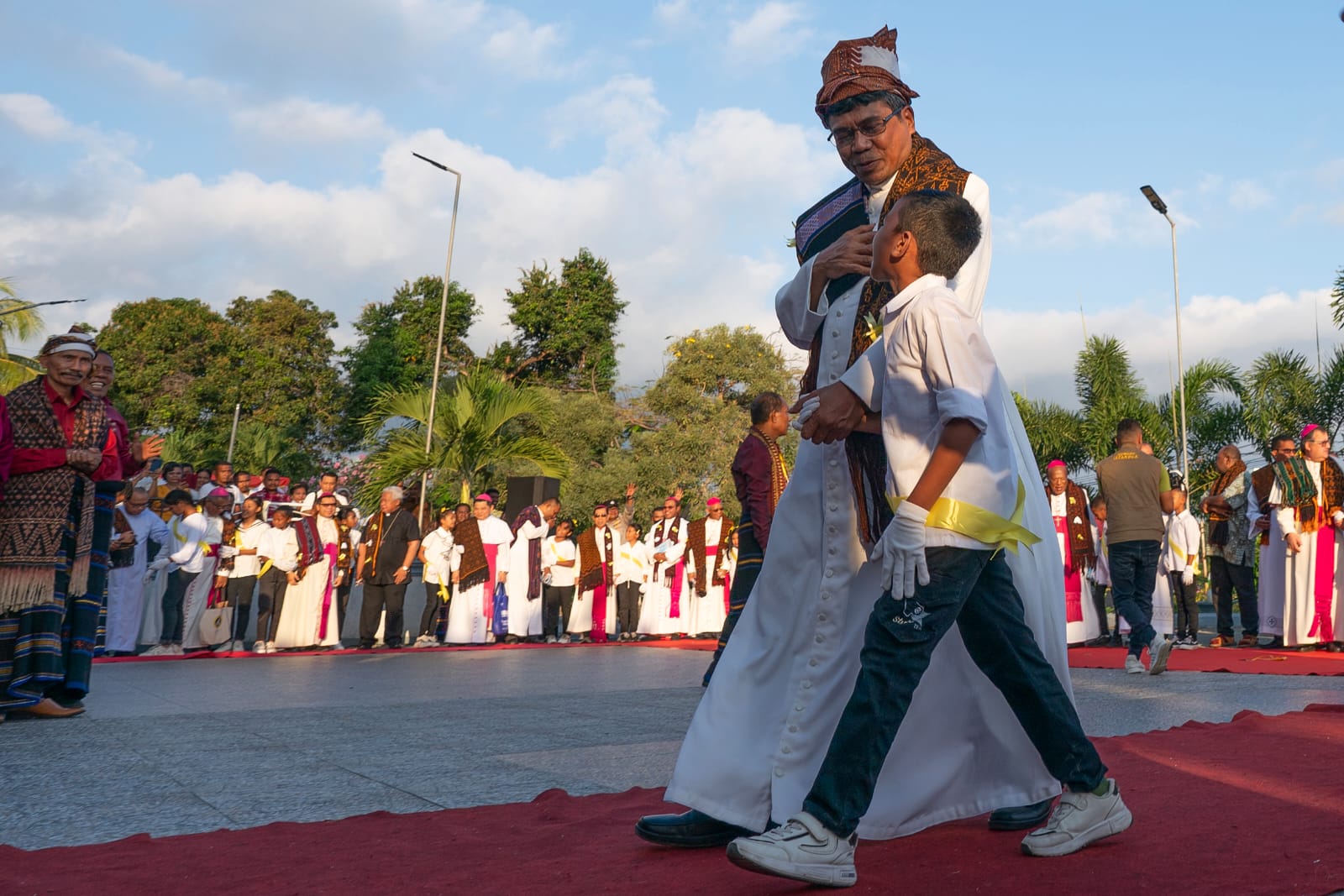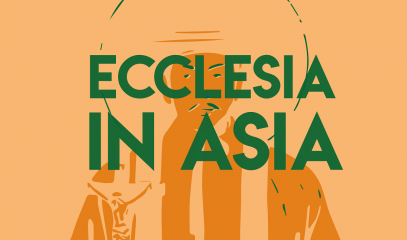Mgr Budi Kleden hopes Francis will help Indonesians defend social harmony
Originally from Flores Island and the Verbite superior general until a few weeks ago, Mgr Paulus Budi Kleden began his term as archbishop of Ende on 22 August. On the eve of the pope's arrival in the country, he talked to AsiaNews about expectations surrounding the visit, as well as the missionary face of the Indonesian Church, which currently has its own priests and nuns serving evangelisation in dozens of countries around the world.
Milan (AsiaNews) – He began his episcopal ministry a few days ago after leading the Verbites (Society of the Divine Word, SVD) for six years, the second Asian to do so. The missionary congregation founded in 1875 in Germany by Fr Arnold Janssen has one the largest presence in Asia with many vocations in Indonesia.
Last May, Pope Francis chose Fr Paulus Budi Kleden, 58, to lead the Metropolitan Archdiocese of Ende on Flores Island, the heart of Indonesian Catholicism.
Originally from Larantuka, a rural area on Flores, he became a priest in 1993, teaching systematic theology for a long time at Ledalero, the great seminary on the island, before holding the position of superior general of the Verbites from 2018 until last July.
On 22 August, he was ordained bishop in Ende, choosing as his motto “Keep the brotherly love in you”, from the verse that opens Chapter 13 of the Letter to the Hebrews.
It is with him that AsiaNews, on the eve of Pope Francis’s departure for Indonesia, reflects on the significance of this trip for this great Asian country and the whole world.
What do you expect from Pope Francis' visit to Jakarta?
First, to strengthen Catholics in Indonesia in their identity as Catholics and their contribution to the nation. Though few in numbers, Indonesian Catholics have been playing a key role in the development of the country. This should be strengthened and continued.
Second, to foster interreligious dialogue in Indonesia. To help Indonesians of other religions understand that the Catholic Church is concerned about the problems of humanity as a whole and it is open to collaborate with others to face challenges.
Third, to encourage the Indonesian government in its commitment to serve Indonesians, helping them live peacefully with differences, including the difference of religion that exist among them, to see these differences as richness to help us grow.
Fourth, I hope that with this visit the Indonesian government will make it easier for expatriate Catholic missionaries to come and work in Indonesia.
Do you think that during this visit, Indonesia's experience can offer the whole world an example of dialogue between Christians and Muslims?
That is my big hope, that the reality of Indonesia of mutual enrichment by religious communities be an example and inspiration for the world. People should see this. I am myself very inspired and proud of the participation of my Muslim brothers and sisters and [members] of other religions during my ordination and on other occasions. At the same, this is an appeal for all Indonesians to safeguard this spirit of living and working together.
In the homily of your installment in Ende you stressed the need for social harmony in Indonesian society. What most endangers this harmony today?
Yes, I did. Social harmony is endangered, for instance, by certain politicians who use religious issues or religious identity to gain votes. The insensitivity to putting up religious buildings where there are just a few believers from that religion is also another factor. The other is economics. When locals who are believers of one religion see that their neighbours from other religions are given more privileges and support to start and run their business, that creates tensions.
Based on your previous experience as SVD general superior, how do you see the contribution of Indonesian foreign missionaries to the global Church today?
We can be proud as Indonesian Catholics that we have become a missionary sending country; for decades we were only a receiving country. From the SVD, there are more than 500 Indonesian missionaries working in 50 countries.
Indonesian missionaries are characterised by their simplicity and readiness to work in remote places. Their experience of living together with other religions, especially with Muslims, is helpful for other local Churches.
(Mathias Hariyadi contributed to this article, photo by Hanafi Jo)








.png)










